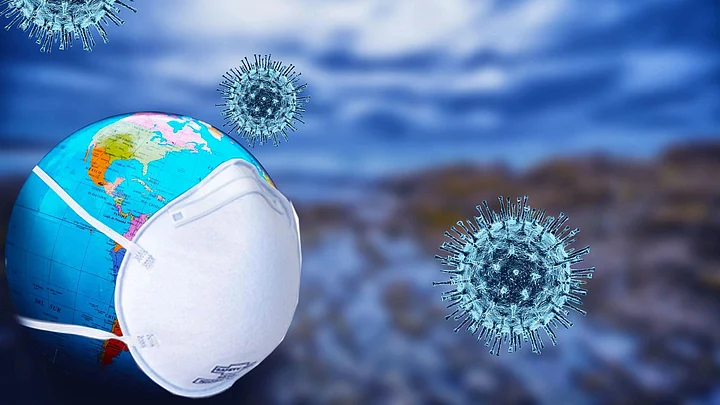With new cases of COVID-19 variants being detected, and many areas seeing a rise in COVID-19 numbers, health authorities are warning against complacency.
The World Health Organization on Monday, 25 October, said that countries need to be more careful and keep a check on the pandemic since COVID-19 cases have been increasing in Europe.
What is the COVID-19 situation like now? Are COVID-19 cases likely to shoot up in the winter? How can you protect yourself? FIT answers your FAQs.
Is Europe Seeing Another Spike in COVID-19 Cases?
WHO’s Europe Director Hans Kluge told media persons that infections have been increasing in Europe, along with influenza cases, and that 60 percent of all cases are being reported from the region as winter is rapidly approaching, reported LiveMint.
However, these newer subvariants seem to be less intensive as deaths are not being reported as rapidly as in the past waves.
How Many Cases Is India Reporting Every Day?
On Wednesday, 26 October, India reported a total of 21,607 active COVID-19 cases, according to the Ministry of Health and Family Welfare. The total number of deaths so far has gone up to 5,28,981.
However, Maharashtra and Karnataka have both reported a significant spike in cases. While the former saw 2,496 cases in the last 24 hours, the latter reported 2,142 cases in the same period.
What Are Karnataka and Maharashtra State Health Advisories Saying?
The Karnataka health department on Tuesday, 25 October, said that those who have symptoms of COVID-19 – fever, cough, cold, sore throat, breathing difficulty – should get tested immediately, and self isolate while they wait for the results.
The Karnataka advisory also asked people to ensure that everyone follows COVID-19 appropriate behaviour.
Earlier this week, Maharashtra’s Brihanmumbai Municipal Corporation had also issued a similar advisory after cases of Omicron subvariants BQ.1, B.2.3.20, and XBB (a recombinant of BA.2.75 and BJ.1) were found in the state.
The advisories released by the two state governments enlisted the basic rules that have been reiterated since the beginning of the pandemic. They stated precautionary measures that the public should follow:
Masks are compulsory
Vaccination (including getting the booster dose) is recommended
Wash your hands frequently
Maintain ventilation in closed spaces and avoid crowds
Avoid close contact with those feeling ill
Get tested if you’re feeling unwell
Follow COVID-19 appropriate behaviour
What Is 'Tridemic'? What Are Experts Saying About It?
With COVID-19, the flu, and the respiratory syncytial virus (RSV) spreading in the United States, expert have been calling this situation a 'tridemic'.
"Part of it is that people aren't wearing masks as they have in the past two years – and so we're being exposed to germs that we haven't seen in a couple years so the severity can be more significant."Dr Joseph Klawitter, Community Health Northwest Florida director of pediatrics, as quoted by Wear TV
"You have a population of kids who just weren't affected by this, because they kind of grew up a little bit more in isolation than kids did before, so now this year they're all seeing this virus that they've never seen before," Dr Whitney Minnock, Beaumonth Health, told Fox2 about the RSV.
If Their Symptoms Overlap, How Can I Tell the Difference Between COVID-19, Viral Influenza, and Seasonal Allergies?
While the symptoms of infections like COVID-19, seasonal flu, swine flu, etc might be similar, there are certain markers that can help you diagnose the problem.
For instance, the symptoms of influenza and swine flu usually show within 1-4 days of infection. However, it might take 5-14 days following the infection for COVID-19 symptoms to surface.
And while symptoms like fever, body ache, fatigue, headache, sore throat, and cough might be similar for all these infections, for patients suffering from COVID-19, distinguishing markers can be a loss of taste and smell, breathlessness, and rashes on the body. Sometimes, they might even suffer from vomiting, nausea, and diarrhoea.
As for identifying seasonal allergies, speaking to FIT for a previous article, Dr Mukesh Mehra, the director of Internal Medicine at Max Hospital, explained that, with allergies, "you are less likely to have a fever. It’s a seasonal phenomenon."
"Flu is transient, and lasts around 4-5 days. Symptoms of seasonal allergies generally last on and off all of the season."Dr Mukesh Mehra, Director of Internal Medicine, Max Hospital

